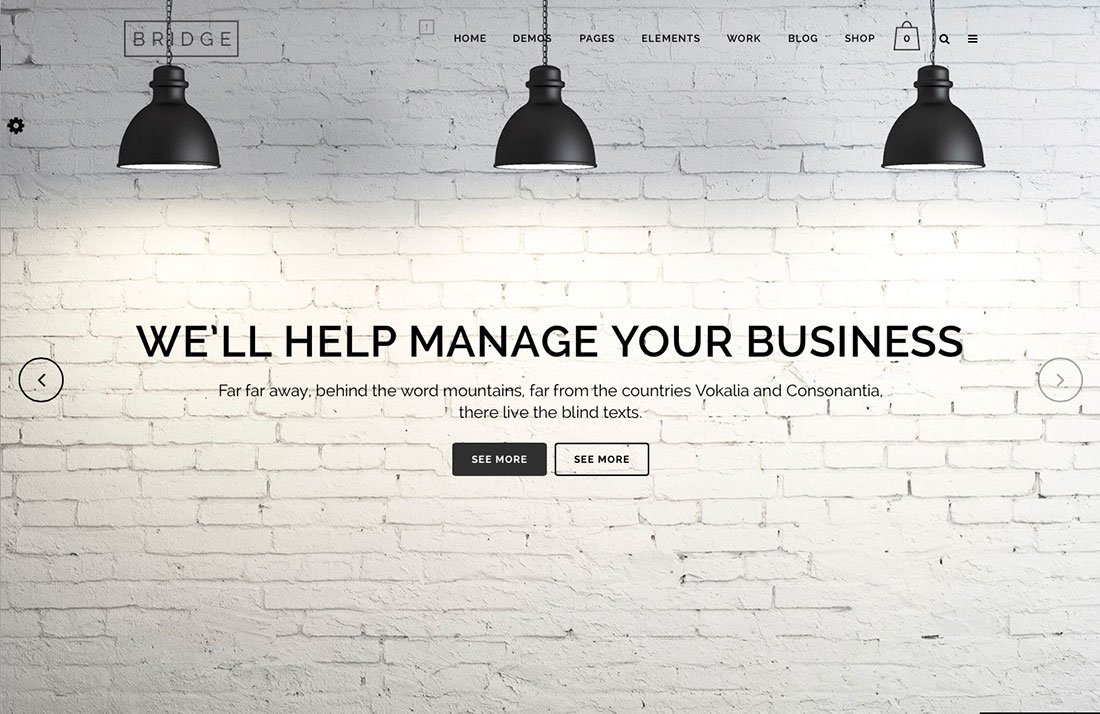Are you ready to dive into the world of fintech blockchain? Strap in because I have 10 real-life use cases of blockchain technology that will blow your mind!
But before we get started, let’s define some terms. Blockchain technology is a decentralized, digital ledger that records transactions securely and transparently. Fintech, short for financial technology, refers to the use of technology to improve and automate financial services.
Now, let’s explore how these two worlds collide and how blockchain is revolutionizing the fintech industry.
Key Takeaways:
- Blockchain technology is a decentralized, digital ledger that records transactions securely and transparently.
- Fintech refers to the use of technology to improve and automate financial services.
- Blockchain is revolutionizing the fintech industry by enhancing security, streamlining processes, and improving efficiency.
Transforming Payments and Remittances
Let’s talk about payments and remittances – the bread and butter of the fintech industry. With the rise of mobile banking and e-commerce, consumers expect fast and secure transactions without exorbitant fees. That’s where blockchain technology comes in.
By leveraging blockchain, fintech solutions can offer faster, cheaper, and more secure cross-border payments. Blockchain’s decentralized and secure ledger enables peer-to-peer transactions without the need for intermediaries such as banks or payment processors.
But wait, there’s more! Blockchain also enables real-time settlement and eliminates the need for correspondent banks, reducing transaction times and costs. It’s no wonder that traditional financial institutions are taking notice and exploring blockchain development for their own payment systems.
| Fintech Solution | Description |
|---|---|
| Ripple | Ripple’s blockchain-based payments solution offers real-time settlement and low fees. It has partnerships with over 300 financial institutions worldwide. |
| Circle | Circle offers a mobile payments app that leverages blockchain for fast and efficient transactions. It also offers a stablecoin pegged to the US dollar for added stability. |
| Stellar | Stellar’s payment network enables fast and low-cost transfers, especially in developing countries. It has partnerships with IBM and Deloitte. |
Blockchain technology is also transforming the remittances industry. By leveraging blockchain, fintech solutions can offer lower fees and faster transfer times, enabling immigrants to send money back home with ease. This is especially impactful for those who rely on remittances for their livelihood.
“Blockchain technology is like the gift that keeps on giving. It not only offers faster and cheaper payments but also has the potential to transform entire industries.” – Yours Truly
It’s safe to say that blockchain is a game-changer for payments and remittances. With the continued growth of the fintech industry and the adoption of blockchain solutions, we can expect even more innovative and convenient payment options in the future.
Enhancing Security and Fraud Prevention
Ah, security and fraud prevention. The two arch-nemeses of the fintech industry. Luckily, blockchain technology has swooped in to save the day.
One of the key benefits of blockchain is its decentralized nature. Because the data is stored across a network of computers, it’s much harder to hack or manipulate than a centralized system. This makes it a great tool for enhancing security and preventing fraud.
But that’s not all! Blockchain’s immutable ledger also ensures that once a transaction is recorded, it can’t be altered or deleted. This provides an additional layer of security, as it makes it much harder to cover up any fraudulent activities.
So, what are some real-life examples of fintech applications that leverage blockchain for security and fraud prevention? Well, how about Trulioo, a global identity verification provider that uses blockchain to enhance its anti-money laundering (AML) and know your customer (KYC) compliance services. Or, there’s Chainalysis, a blockchain analysis company that helps law enforcement agencies investigate and prevent illicit activities on the blockchain.
The fintech industry is constantly evolving, and security and fraud prevention will always be top of mind. But with blockchain technology on our side, we can sleep a little easier at night.
Streamlining Identity and Know Your Customer (KYC) Processes
Ah, the dreaded KYC process. No, it’s not a new workout fad. It stands for “Know Your Customer,” and it’s a vital part of the fintech industry. KYC procedures are used to verify the identities of customers and prevent fraudulent activities like money laundering and terrorism financing. But let’s be real, the traditional KYC process is time-consuming, costly, and about as exciting as watching paint dry.
Enter blockchain technology. Blockchain provides a secure and efficient way to verify identities, reducing the costs and time associated with traditional KYC procedures. By leveraging blockchain, fintech companies can streamline their KYC processes and provide their customers with a more user-friendly experience.
Blockchain technology can also help with identity verification in other industries, such as healthcare. Imagine having all of your medical records stored securely on the blockchain, accessible only by authorized parties. That’s the power of blockchain innovation.
Revolutionizing Smart Contracts and Insurance
Let’s talk about smart contracts and insurance! These two areas of the fintech industry are experiencing a major transformation thanks to blockchain technology.
So, what exactly are smart contracts? Think of them as self-executing contracts that don’t require the intermediation of third parties. These contracts are coded into the blockchain and automatically execute when predetermined conditions are met.
And that’s not all! Smart contracts are also transparent, immutable, and tamper-proof. This means that once the terms of the contract are agreed upon, they cannot be altered or manipulated by anyone.
But what does this mean for insurance policies? Well, it means that blockchain technology can automate insurance claims, making them faster, more accurate, and more efficient. Imagine not having to go through a lengthy claims process because the smart contract automatically executed the payout once the specified conditions were met. Sounds pretty good, right?
There are already numerous fintech applications that leverage blockchain technology for smart contracts and insurance solutions. For example, the Insurwave platform, launched in 2018, uses blockchain to manage shipping insurance policies. It automates the claims process and reduces the administrative burden that comes with traditional insurance policies.
And that’s not the only use case! The healthcare industry is also looking to blockchain technology to help automate patient compensation claims. Smart contracts can be used to ensure that patients receive compensation when their data is used for research purposes.
It’s clear that blockchain technology is revolutionizing the way we think about smart contracts and insurance policies. By leveraging blockchain’s transparency, immutability, and automation capabilities, the fintech industry can provide faster, more efficient, and more accurate services to consumers.
Improving Supply Chain Management and Trade Finance
As a copywriting journalist in the fintech industry, I’m always on the lookout for innovations that can streamline processes and increase efficiency. That’s why I’m excited to explore how blockchain technology is revolutionizing supply chain management and trade finance.
With fintech blockchain solutions, businesses can track products from production to delivery in real-time. This transparency not only reduces fraud and counterfeiting risks but also helps optimize the supply chain by identifying bottlenecks and inefficiencies.
One example of a fintech solution leveraging blockchain technology is Provenance, a platform that provides end-to-end transparency for products, tracking them from raw materials to finished goods. By using blockchain, Provenance ensures that every step of the production and distribution process is recorded immutably on a decentralized ledger, creating trust among all parties involved in the supply chain.
In the trade finance sector, blockchain also offers significant benefits. With traditional trade finance, there are numerous steps and intermediaries involved in the process, leading to high transaction costs and delays. Blockchain technology can automate many of these steps, reducing costs and speeding up the process.
One fintech blockchain solution that is making waves in the trade finance industry is We.Trade. This platform connects buyers, sellers, and banks on a single blockchain-based platform, enabling faster and more secure transactions. By streamlining the process, We.Trade reduces the risk of fraud and error while also improving the speed and efficiency of trade finance.
The fintech industry is constantly evolving, and blockchain technology is at the forefront of this transformation. As more and more businesses adopt blockchain solutions, we can expect to see further improvements in supply chain management and trade finance.
FAQ
Q: What is blockchain technology?
A: Blockchain technology is a decentralized and transparent digital ledger that records transactions across multiple computers. It enables secure and efficient peer-to-peer transactions without the need for intermediaries.
Q: How is blockchain technology used in fintech?
A: Blockchain technology is used in fintech to improve various processes such as payments, identity verification, smart contracts, supply chain management, and trade finance. It enhances security, increases transparency, reduces costs, and enables faster and more efficient transactions.
Q: What are some real-life use cases of blockchain technology in fintech?
A: Some real-life use cases of blockchain technology in fintech include cross-border payments, remittances, fraud prevention, identity verification, smart contracts, insurance, supply chain management, and trade finance. These applications leverage blockchain’s unique features to revolutionize the fintech industry.
Q: How does blockchain technology enhance security and prevent fraud in fintech?
A: Blockchain technology enhances security and prevents fraud in fintech by providing a decentralized and immutable ledger. It ensures that transactions are transparent and tamper-proof, reducing the risks of data breaches and fraudulent activities. Blockchain also enables secure identity verification and authentication, making it harder for fraudsters to manipulate the system.
Q: How does blockchain streamline identity verification and Know Your Customer (KYC) processes?
A: Blockchain streamlines identity verification and KYC processes by providing a secure and efficient way to verify identities. It eliminates the need for repetitive and time-consuming paperwork, allowing for seamless identity verification. Blockchain also enables individuals to have control over their own data, reducing the risks of data breaches and identity theft.
Q: How does blockchain revolutionize smart contracts and insurance in fintech?
A: Blockchain revolutionizes smart contracts and insurance in fintech by providing a decentralized and transparent platform for contract execution and management. Smart contracts are self-executing contracts with the terms of the agreement directly written into the code. Blockchain ensures that these contracts are accurately executed, reducing the need for intermediaries and increasing efficiency. In insurance, blockchain enables automated claims processing and improves the accuracy and transparency of policy management.
Q: How does blockchain improve supply chain management and trade finance in fintech?
A: Blockchain improves supply chain management and trade finance in fintech by providing transparency, traceability, and efficiency. It allows for real-time tracking of goods, reducing the risks of fraud and counterfeiting. Blockchain also enables faster and more secure cross-border transactions, eliminating the need for lengthy paperwork and intermediaries. This improves the overall efficiency of supply chain processes and trade finance.

![The 10 Most Accurate Website Traffic Estimators [2025 Update] - Accurate Website Traffic Estimators The 10 Most Accurate Website Traffic Estimators [2025 Update] - Accurate Website Traffic Estimators](https://www.toptut.com/wp-content/uploads/2024/01/The-10-Most-Accurate-Website-Traffic-Estimators-2024-Update.jpg)





Comments 1
Comments are closed.